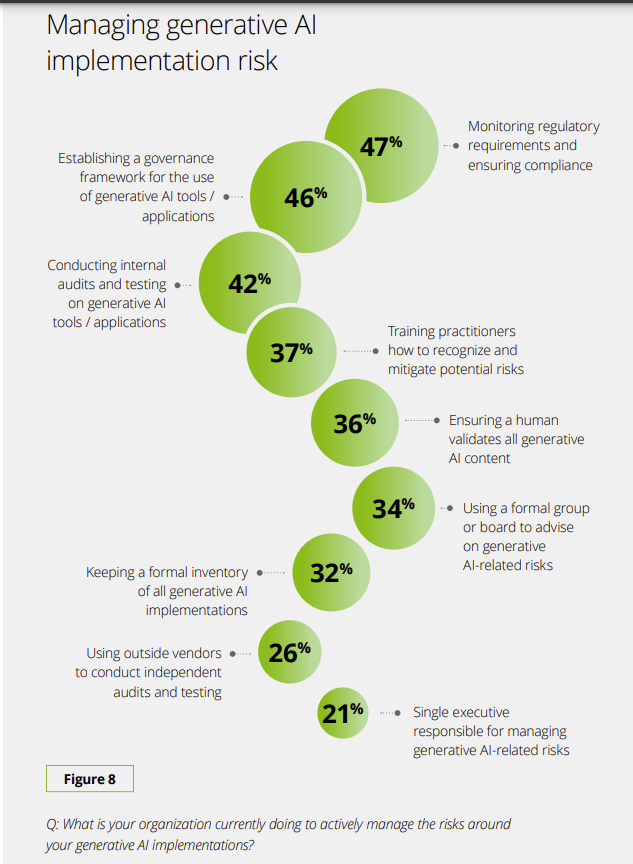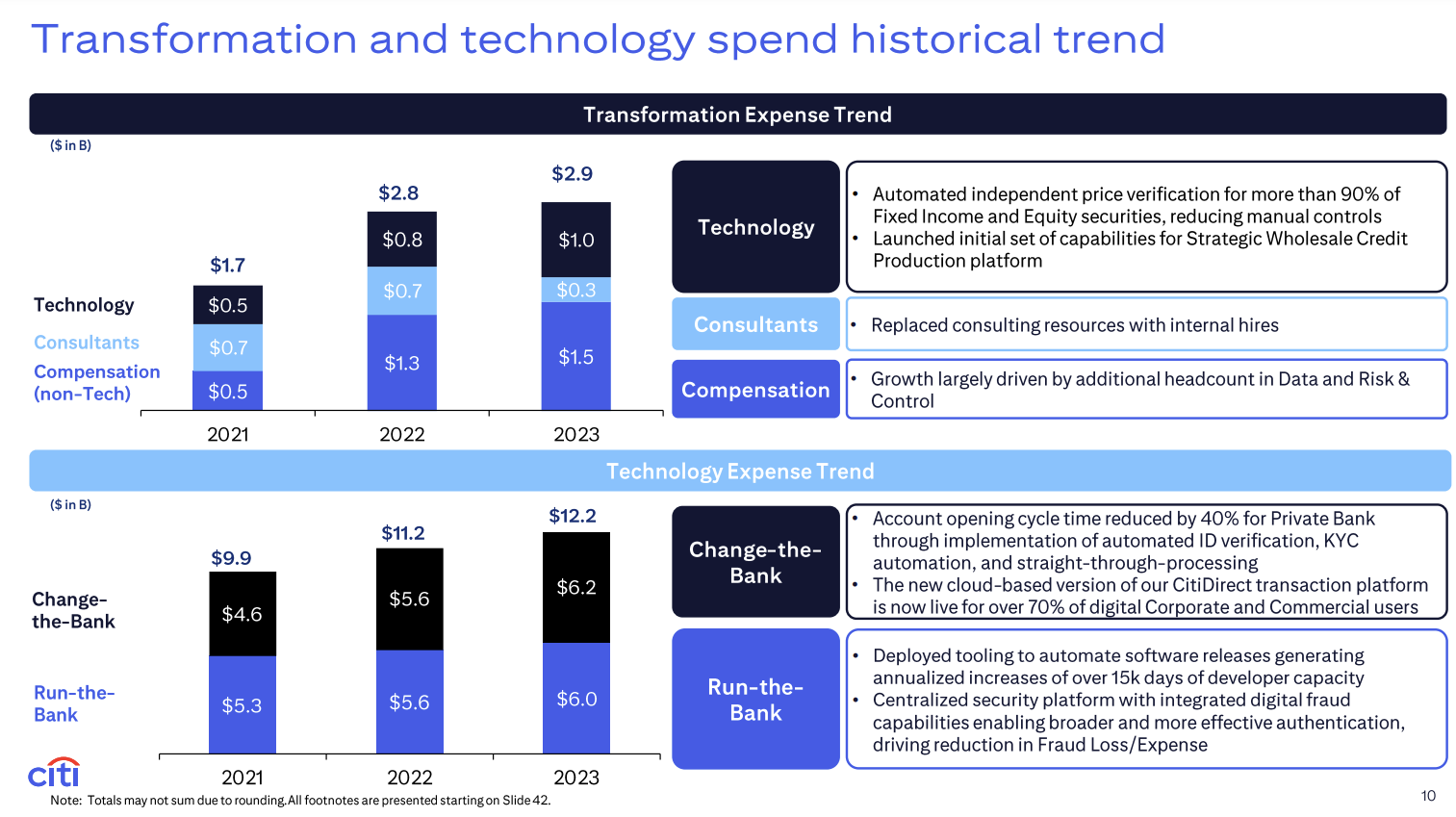When it comes to artificial intelligence and generative AI enterprises are still weighing options, trying to scale pilots and balance short-term returns and efficiency with long-term business transformation. These businesses are also wrestling with generative AI hype vs. reality.
In 2023, generative AI was top of mind and vendors raced to build out offerings. Now the question is how quickly enterprises will scale up generative AI.
- Why vendors are talking RPOs, pipelines, pilots instead of generative AI revenue
- Generative AI features starting to launch, next comes potential sticker shock
These generative AI disconnects are appearing already in a bevy of surveys, conversations and research. Earnings calls are likely to add a few more generative AI themes to watch.
Here's a look at why the generative AI disillusionment is showing up in multiple places.
Big money is being spent on AI and returns need to follow. You can almost feel the pressure on CXOs when it comes to AI, generative AI and transformation spending. Boards want returns yesterday. According to Boston Consulting Group, 85% of more than 1,400 C-suite executives said they plan to increase spending on AI and generative AI, a top three priority, in 2024.
And expectations may be running ahead of reality. According to Constellation Research's second half 2023 CxO Business Confidence Survey: "Buy-side CxOs are balancing the pressure to invest in the AI space with the need for certainty about the reliability of these new tools. In turn, enterprise tech vendors recognize and predict strong revenue potential in the generative AI space but currently are in the waiting phase of tangible selling and the client's desire to see tangible return on investment (ROI)."
Constellation ShortList™ Artificial Intelligence and Machine Learning Cloud Platforms | Get ready for a parade of domain specific LLMs | Trust In The Age of AI
BCG found that 90% of CEOs are waiting for generative AI to move past the hype and remain in the pilot phase. A report from Deloitte on the state of AI (right) found that 79% of CXOs expect generative AI to drive organizational transformation in less than three years, but the majority are focusing on tactical returns like cost savings over growth and innovation.
Data is still a big problem and there may not be enough of it. Yes, there's all of the data strategy and architecture work that needs to be done before generative AI pays off. But there is a larger question: Do enterprises have enough data.
Constellation Research CEO Ray Wang said on DisrupTV Episode 348:
"This year, everybody has budget so that they can actually prove that maybe this is the year we actually get some benefit out of AI. But we trend it out even further and we realized that next year is the year. Companies realize that no one will have enough data to get to a level of precision their stakeholders will trust."
Whether companies go with large language models or smaller models, there's a data issue. Wang said:
"The first 80% of data is hard, but that next 90% is just as hard. And that next 95% of data is even harder. You might get to this point where you're only going to gonna get 99% accuracy. Is that good enough? For contact center? Probably. For procurement? No. For health care? Never."
What we learned from customers in 2023 and predictions for 2024
Orchestration is challenging. It's one thing to find a commoditized large language model. It's another thing to tune it and secure your data. And it's another challenge to deliver that last mile experience. Frank Schneider, Vice President, AI Evangelist at Verint, on DisrupTV Episode 348 noted:
"A lot of this is use case driven. Is AI getting the use case accomplished," said Schneider, who added that there's accuracy, performance and trust and each use cases will have different variables of those three core items.
"It's really about orchestrating experiences, technologies, language models and getting things in the puzzle to fit together," said Schneider. "Folks with scar tissue can help answer how that equilibrium is going to work because they've tried multiple things over the years of business transformation, digital transformation and whatever new technology has come out."
"The elegant brilliance is in the last mile. That's where the winners are going to be."
Efficiency is dominating the AI conversation, but real transformation is about solving big challenges. Mark Minevich, Chief Digital AI Strategist, Global Social Innovation Technology Executive & Chair, UN Advisor, Private Investor and Author Columnist, said one of his biggest issues with AI and the topic is that it has been "swallowed by corporate players."
"Corporate players ferociously focus on optimization and efficiencies," said Minevich. "I think you need to repurpose and reposition the mission of AI to focus on solving the greatest challenges and problems. I think it's time for AI to save the world. I'm not here to replace human beings."
However, 65% of CFOs agree that they will deploy digital technologies to automate certain jobs previously performed by humans, according to Deloitte.
AI's role in transformation projects is a work in progress. Citigroup has had an ongoing transformation underway for years and the latest installment includes a reorganization to become flatter and 20,000 layoffs.
Citigroup CFO Mark Mason didn't talk AI on the bank's fourth quarter earnings conference call but did note a lot of spending on IT and transformation.
“Over the past three years, we have invested significantly in our infrastructure, platforms, applications, processes and data.
Roughly 30% of our transformation investments over the last three years were in technology, with the remainder related to non-tech employees and consultants. In 2023, we've seen a shift from consulting expenses to technology and compensation as we've gotten deeper into the execution of our transformation. And you should expect to see this trend continue.
In total, we invested over $12 billion in technology in 2023. Beyond transformation, our technology investments are also focused on digital innovation, new product development, client experience enhancements and areas that support our infrastructure like cloud and cyber."

Wang said in a research report that transformation projects need to have a longer-term view and consider the likelihood of success as well as qualitative benefits.
There are numerous hurdles blocking AI adoption. In a recent survey, IBM noted multiple barriers to AI adoption.
- 33% said their companies had limited AI skills and expertise.
- 25% said there was too much data complexity.
- 23% had ethical concerns.
- 22% said projects were too difficult to integrate and scale.


